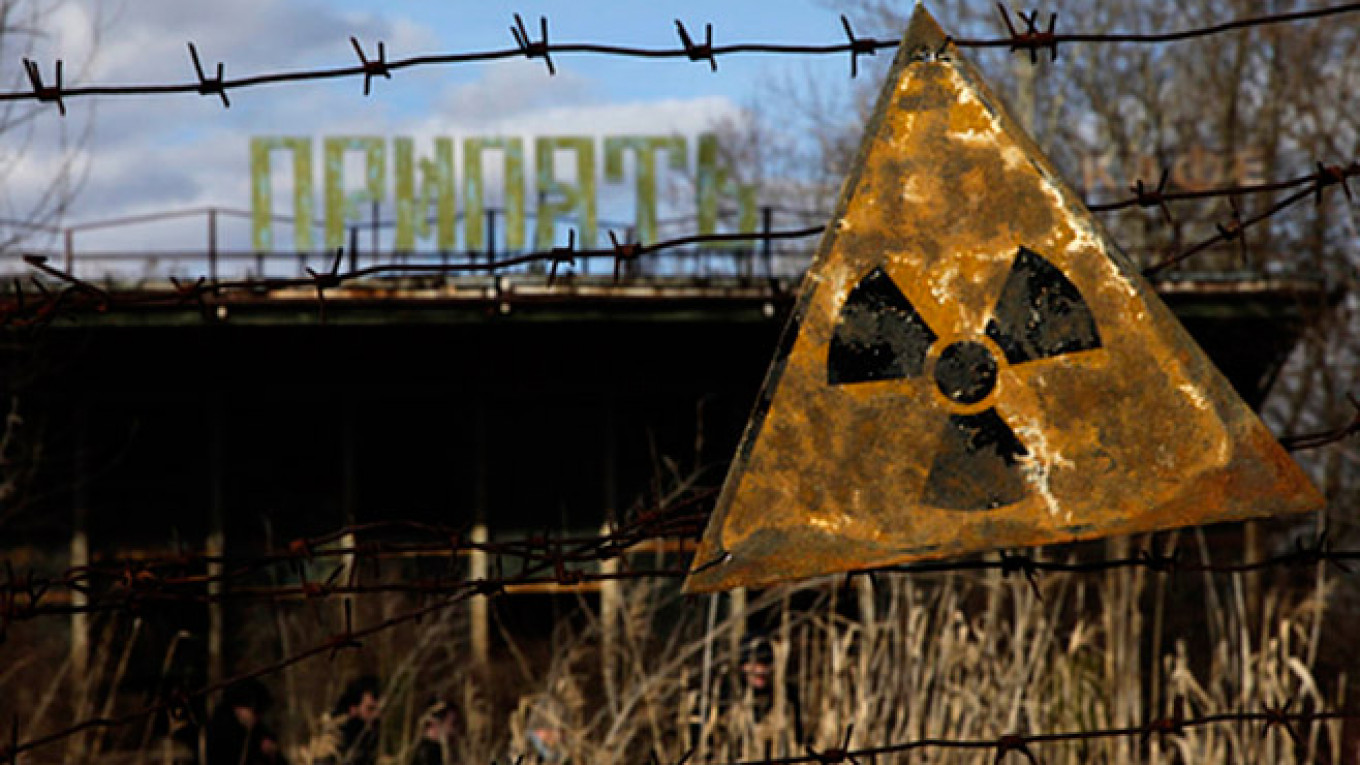In 1983, the Soviet Union inaugurated two nuclear reactors in what is now Ukraine. One of them, unit four at Chernobyl, experienced an explosion and fire three years later that released large quantities of radioactive particles into the atmosphere — a catastrophic accident whose effects are still being felt far beyond Ukraine's borders. The other reactor, unit one at the South Ukraine Nuclear Power Station, remains in operation, though all indications suggest that it should be retired.
The prolonged operation of the country's aging nuclear power plants probably would not have been possible without financial support from European taxpayers, delivered through the European Bank for Reconstruction and Development and the European Atomic Energy Community as part of a 600 million euro ($650 million) "safety upgrade" program.
Thanks to these efforts, the South Ukraine plant was granted a ten-year lifetime extension permit in 2013 by the State Nuclear Regulatory Inspectorate (SNRIU). But, according to a comprehensive study released last month by the National Ecological Center of Ukraine (NECU), the assessment on which this decision was based was deeply flawed.
In fact, the unit one reactor suffers dangerous vulnerabilities, with observed wear in some areas already exceeding tolerable levels by a factor of ten. Such vulnerabilities, the study warns, could result in a nuclear emergency, including a release of radioactive particles inside the unit — or even into the environment.
This is hardly an isolated case. Three of Ukraine's nuclear power units are currently operating beyond their design lifetime, with nine others set to reach the end of their intended lifetime within the next five years. Most immediately, unit two in South Ukraine will reach that point in less than three weeks, meaning that the SNRIU must now decide whether to grant that unit a 20-year lifetime extension.
The SNRIU will make this critical decision without key information about the health and environmental risks that the reactor poses to Ukraine and its neighbors. Though this contravenes Ukraine's responsibility to carry out a cross-border environmental-impact assessment, no such analysis is expected to take place.
Last month, campaign groups in neighboring countries wrote to their representatives at the EBRD, requesting that the bank suspend its support for revitalizing Ukraine's nuclear power plants until a cross-border assessment is carried out.
But, even with such an analysis, Ukraine's nuclear regulator would be in no position to guarantee the safe operation of aging nuclear units. Not only is its professional capacity dubious, its independence has been dramatically curtailed by the Ukrainian government's recent decision to reduce significantly regulatory obligations for businesses and state-owned companies.
This is to say nothing of the threat posed by the ongoing military conflict with Russian-backed separatists in the Donbass region. Beyond the obvious risks associated with instability, there is the fact that Ukraine depends on Russia not only for most of the fuel to run its aging reactors, but also for the treatment and storage of most of its spent fuel. In other words, Ukraine's dependence on nuclear energy, which accounts for half of its electricity generation, has increased its strategic vulnerability to Russia.
That alone should be enough to convince Ukraine's government not to perpetuate their country's reliance on this insecure and dangerous energy source. The 29th anniversary of the Chernobyl disaster, commemorated this month, should serve as a reminder of the damage a nuclear accident can cause.
Ukraine should take its reactors' expiration dates as an opportunity to pursue a safer, more sustainable energy future. It is a long-term commitment, but one for which there may not be a lifetime extension.
Iryna Holovko is a Ukraine campaigner at CEE Bankwatch Network and the National Ecological Center of Ukraine. © Project Syndicate, 2015.
A Message from The Moscow Times:
Dear readers,
We are facing unprecedented challenges. Russia's Prosecutor General's Office has designated The Moscow Times as an "undesirable" organization, criminalizing our work and putting our staff at risk of prosecution. This follows our earlier unjust labeling as a "foreign agent."
These actions are direct attempts to silence independent journalism in Russia. The authorities claim our work "discredits the decisions of the Russian leadership." We see things differently: we strive to provide accurate, unbiased reporting on Russia.
We, the journalists of The Moscow Times, refuse to be silenced. But to continue our work, we need your help.
Your support, no matter how small, makes a world of difference. If you can, please support us monthly starting from just $2. It's quick to set up, and every contribution makes a significant impact.
By supporting The Moscow Times, you're defending open, independent journalism in the face of repression. Thank you for standing with us.
Remind me later.


